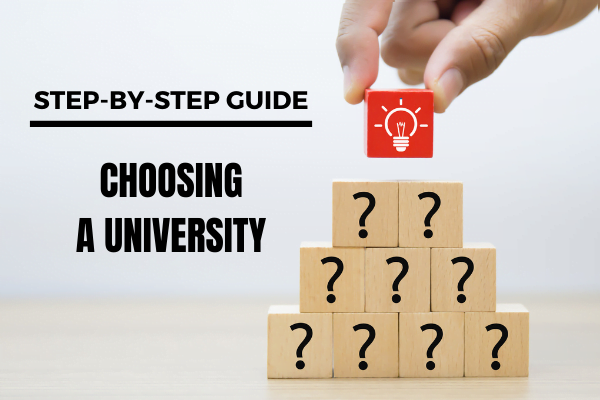1. Define Your Goals:
- Before you start researching universities, clarify your educational and career goals. Determine your preferred major or field of study and whether you want to pursue a specific career path, research, or personal interests.
2. Consider Location:
- Decide whether you want to study close to home or explore new places. Location matters, and it can affect your overall university experience. Think about factors like climate, urban or rural setting, and proximity to family.
3. Accreditation:
- Ensure that the university is accredited by a recognized accreditation body. Accreditation ensures that the institution meets certain academic standards and that your degree will be recognized by employers and other educational institutions.
4. Research Programs and Majors:
- Look into the specific academic programs and majors offered by the university. Make sure they align with your interests and career goals. Consider the quality and reputation of these programs.
5. University Rankings:
- While rankings should not be the sole deciding factor, they can provide valuable insights. Look at various university ranking lists and consider the criteria they use to assess universities. Pay attention to rankings in your specific field of study.
6. Financial Considerations:
- Determine your budget for tuition, living expenses, and other costs. Research scholarships, financial aid options, and the cost of living in the area surrounding the university.
7. Campus Culture and Size:
- Assess the campus culture and size of the university. Do you prefer a large, research-focused institution, or a smaller, close-knit community? Visit campuses if possible to get a sense of the atmosphere.
8. Faculty and Research Opportunities:
- Look into the qualifications and research interests of the faculty in your intended major. Research opportunities can significantly enhance your academic experience.
9. Extracurricular Activities:
- Consider what extracurricular activities, clubs, and organizations are available. These can help you develop new skills, make friends, and enhance your university experience.
10. Student Support Services:
- Investigate the availability of support services like academic advising, career counseling, mental health resources, and tutoring.
11. Graduation and Job Placement Rates:
- Research the university's graduation rates and job placement rates. High graduation rates can indicate student satisfaction, while strong job placement rates reflect the university's commitment to students' career success.
12. Alumni Network:
- A strong alumni network can provide valuable connections and opportunities post-graduation. Investigate whether the university has an active and engaged alumni community.
13. Visit Campuses:
- If possible, visit the campuses of your top choices. Campus visits can give you a feel for the environment, the people, and the facilities.
14. Read Reviews and Seek Advice:
- Read reviews and testimonials from current and former students. Additionally, seek advice from teachers, counselors, and professionals in your intended field.
15. Trust Your Instincts:
- Ultimately, trust your instincts. Choose a university where you feel comfortable, inspired, and confident that you can achieve your goals.
Remember that the right university for you might not be the same as the right choice for someone else. Take your time, do thorough research, and make a decision that aligns with your unique needs and aspirations.




Comments (0)